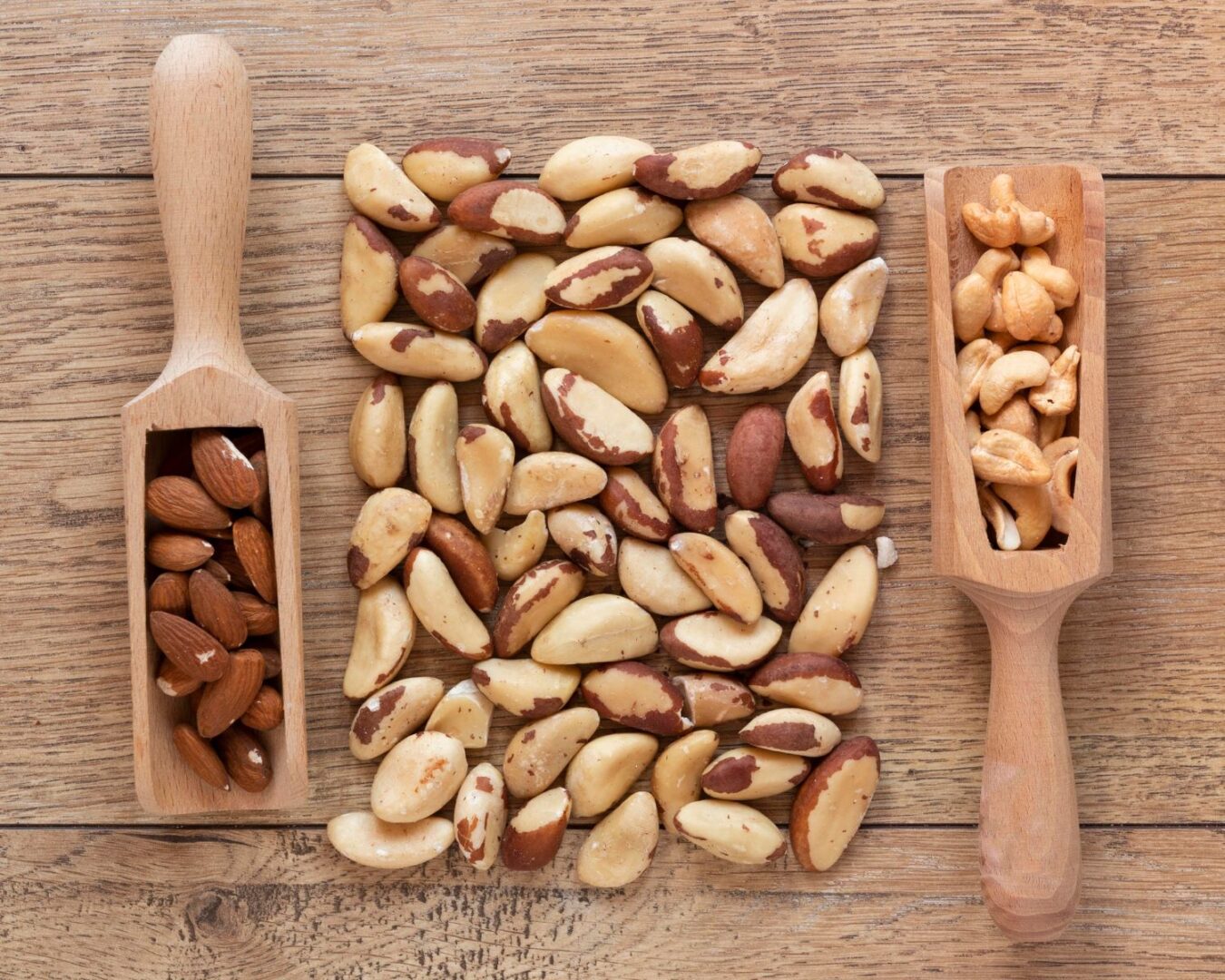Thyroid health is essential for energy, brain function, and metabolism. But for those living with Parkinson’s Disease, understanding how thyroid function interplays with dopamine metabolism is particularly important. Dopamine, the neurotransmitter that’s deficient in Parkinson’s Disease, shares biochemical pathways with thyroxine (T4), the inactive form of thyroid hormone. Disruptions in dopamine metabolism may impact thyroid hormone conversion and vice versa, highlighting the need for targeted nutritional support.
In this article, we explore how selenium and other key nutrients influence both thyroid function and dopamine metabolism. You’ll also discover practical food-based strategies and testing guidance to help support your thyroid and neurological health.
Selenium: The Thyroid’s Unsung Antioxidant Ally
Selenium is critical for the conversion of T4 into T3, the active form of thyroid hormone. But it also has antioxidant properties that protect the thyroid gland from oxidative damage, a key concern for people with Parkinson’s Disease, where oxidative stress accelerates neurodegeneration.
Benefits of Selenium in Parkinson’s Disease and Thyroid Health:
✅ Promotes conversion of T4 to active T3
✅ Helps regulate immune function and reduce thyroid antibodies
✅ Supports glutathione production, the body’s master antioxidant, vital for protecting dopamine-producing neurons
Selenium-rich foods to add to your diet:
- Brazil nuts (1–2 per day are enough!)
- Wild-caught salmon
- Mushrooms
- Eggs
- Sunflower seeds
Tip: Soil content affects selenium levels in food, so test your selenium levels before supplementing. I can help you organise comprehensive nutrient testing, learn more about your options.
Other Nutrients Supporting Thyroid Function and Dopamine Metabolism
1. Iodine: Thyroid Hormone Foundation
Iodine is required to make thyroid hormones, which also indirectly influence dopamine pathways. However, iodine should be carefully managed, especially in cases of autoimmune thyroid conditions like Hashimoto’s.
Good sources of iodine:
- Seaweed (kelp, wakame)
- Cod and seafood
- Iodised salt
If you have thyroid autoimmunity, only supplement iodine under professional guidance.
2. Zinc: A Co-factor in Hormone Balance
Zinc plays a dual role by aiding in thyroid hormone conversion and supporting immune function. It also plays a role in neurotransmitter production, including dopamine synthesis.
Zinc-rich foods:
- Pumpkin seeds
- Chickpeas
- Grass-fed beef
- Oysters
3. Magnesium: For Stress, Muscle Function, and Mood
Magnesium supports both thyroid hormone production and dopamine metabolism. It helps reduce muscle cramps, a common Parkinson’s symptom, and supports nerve health.
Food sources:
- Dark leafy greens
- Almonds and cashews
- Avocados
- Dark chocolate (85% or higher)
4. Vitamin D: Immune and Mood Regulation
Vitamin D deficiency is common in both thyroid and Parkinson’s patients. It plays a role in immune modulation, mood regulation, and inflammation control.
Sources include:
- Egg yolks
- Fatty fish
- Fortified dairy/plant milk
- Gentle sun exposure
Dopamine, Thyroid Hormones, and Parkinson’s Disease: The Hidden Link
Dopamine and thyroxine share tyrosine as a common precursor. If thyroid function is suboptimal, it may alter how dopamine is synthesised or metabolised. In Parkinson’s Disease, where dopamine levels are already compromised, a sluggish thyroid could worsen symptoms such as fatigue, low mood, and slowed movement.
That’s why addressing both thyroid health and nutrient status is so important for symptom management in Parkinson’s Disease.
Dietary Strategies to Support Thyroid and Dopamine Function
✅ Eat a wide variety of whole, minimally processed foods
✅ Reduce refined sugars and ultra-processed ingredients
✅ Include anti-inflammatory herbs and spices like turmeric and ginger
✅ Prioritise gut health with fermented foods to aid nutrient absorption
Get Tested – Don’t Guess
If you’re experiencing signs like fatigue, dry skin, brittle hair, brain fog, or weight changes, testing is crucial before beginning supplementation. I recommend checking:
- TSH, Free T3, Free T4
- Thyroid antibodies (TPO and TG-Ab)
- Nutrient status for selenium, zinc, vitamin D, and magnesium
I offer functional testing and personalised nutrition support to help you understand and support your thyroid and neurological health. Learn more about my approach.
Book Your Discovery Call
If you suspect thyroid imbalances are affecting your energy, mood, or Parkinson’s symptoms, now is the time to act. Book your discovery call today and start a personalised plan to support your thyroid and brain health with expert nutritional guidance.




